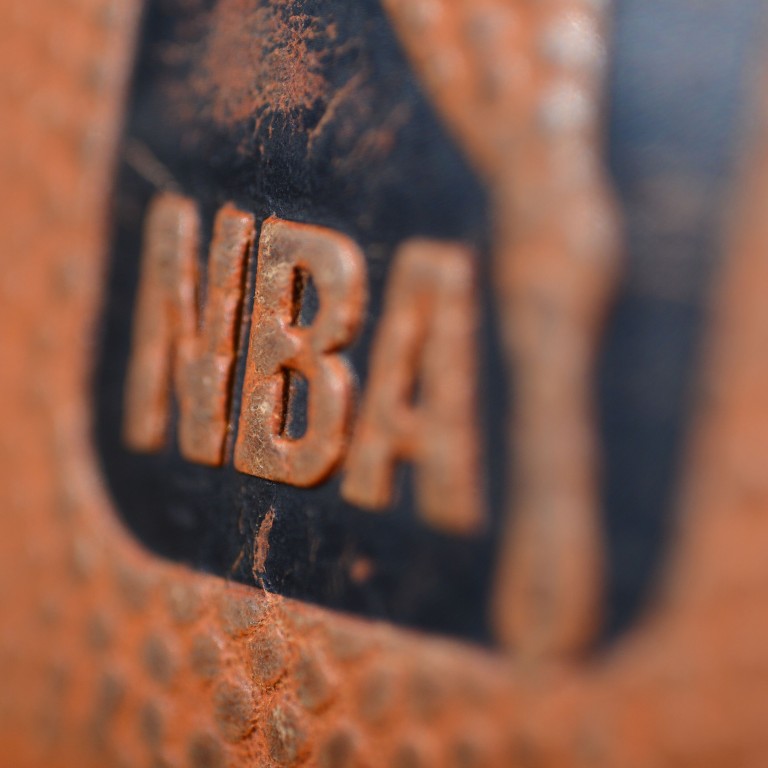
NBA in China: choppy waters lie in wait for pious league as it crosses the Rubicon of sport and social justice
- A highly damning ESPN expose about abuses at NBA academies in China counters the league’s mantra of protecting individual freedoms and human rights
- How the NBA’s relationship with China plays out will be fascinating to watch, particularly now the games themselves seem secondary to the activism
History is unanimous about little. However, one thing historians do agree on is that 49BC was the year Julius Caesar and his troops crossed the Rubicon river and in the process precipitated the Roman Civil War. “Alea iacta est” (The die is cast), Caesar declared, and so it was that the term “crossing the Rubicon” became an indispensable metaphor for passing the point of no return. Fast forward a couple thousand years and today anyone with electricity will also agree that 2020 is the year that sports and social justice irretrievably crossed the Rubicon hand in hand.
Led by their unfailingly righteous commissioner Adam Silver, the league has long claimed that social justice is in their DNA.
The NBA relaunch this week, in the wake of the Covid-19 pandemic and explosive racial strife gripping the country, strongly reinforced their activism. The opening games began with a five-minute video in support of Black Lives Matter, while a similar message was prominently displayed on the court. The NBA also approved 29 jersey messages ranging from “I Can’t Breathe” and “Say Her Name” to “Justice” and “Equality”, while courtside broadcasters incorporated the message of social justice into every single player interview. Domestically, at least, the NBA’s activism was inescapable by design.

According to NBA deputy commissioner Mark Tatum, the academies were largely run by local authorities with the NBA supplying foreign coaches and trainers. Tatum also admitted that they were somewhat humbled by the revelations. “One of the lessons that we’ve learned is that we do need to have more direct oversight and the ability to make staffing changes when appropriate,” he added in a pique of understatement.
When we followed up with the Hong Kong office of NBA Asia over their role in the academies, we were referred to Tatum’s quote regarding the NBA ending their involvement with the Academy in Xinjiang last year. NBA Asia does not cover China, which is run by NBA China who naturally had no comment.
For a league obsessed with the optics of personal freedom and social justice, the decision in 2016 to run an NBA-branded academy in Xinjiang – a police state in western China where more than a million Uygur Muslims are held in barbed-wire camps – reeks of hubris and hypocrisy.

This being an election year in the US, all the Sinophobe’s on Capitol Hill and in the Senate who are merrily whacking away at China’s heavy-handed treatment of Hong Kong like a piñata on Cinco de Mayo, were more than happy to remind the NBA of their duplicitous corporate international affairs. One marauding senator even went so far as to castigate the league for not allowing players to wear anti-China messages on their jerseys, instead of anti-police messages.
Missouri senator Josh Hawley wrote a pointed letter to Silver asking why none of the 29 “approved” social justice messages players could wear on their uniforms “included support for the people of Hong Kong, whose remaining freedoms are being extinguished by the Chinese Communist Party’s newly enacted national security law”.
For the majority of NBA players, China is not the bogey man ... None of them have choked on the toxic tear gas in the streets of Hong Kong or been forcibly detained in a re-education camp in Xinjiang
For the majority of NBA players, China is not the bogey man. The police are. None of them have choked on the toxic tear gas in the streets of Hong Kong or been forcibly detained in a re-education camp in Xinjiang. Still, this China issue is not going anywhere and all the lawyerly denials from the NBA suits, combined with the league’s high-profile domestic activism, will only further inflame the issue.
It’s fair to say, at this stage at least, the NBA wants it both ways. The league with human rights in their DNA is dancing on a volcano in China, a US$4 billion volcano. How they navigate this relationship will be fascinating to watch, particularly now that the games themselves seem secondary to the activism. But there is no turning back. You don’t have to be Caesar’s ghost to know the die is indeed cast for the NBA.

